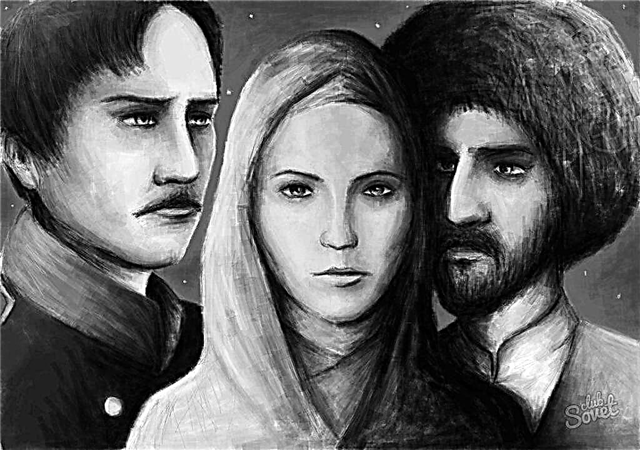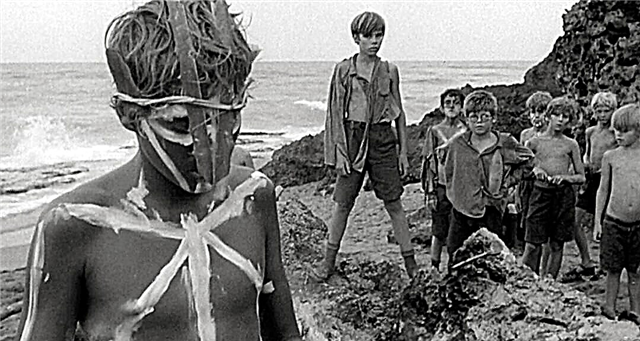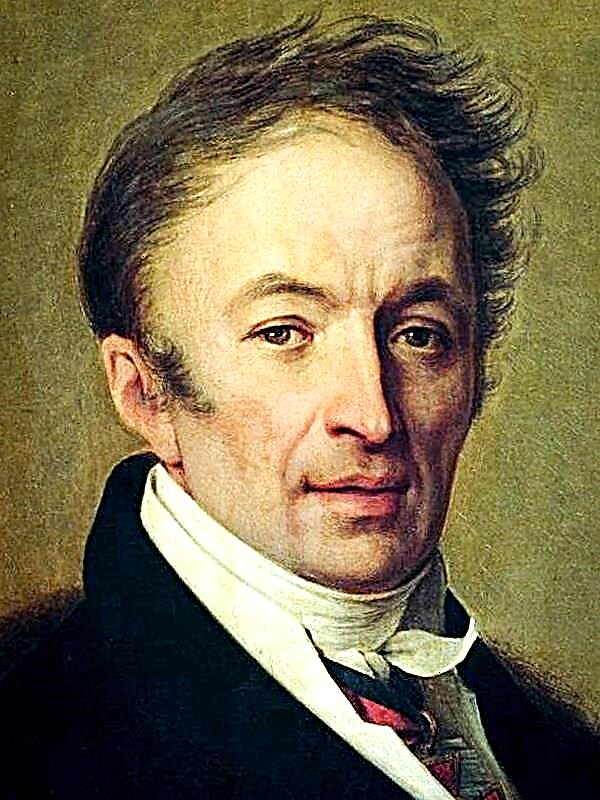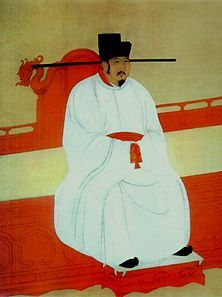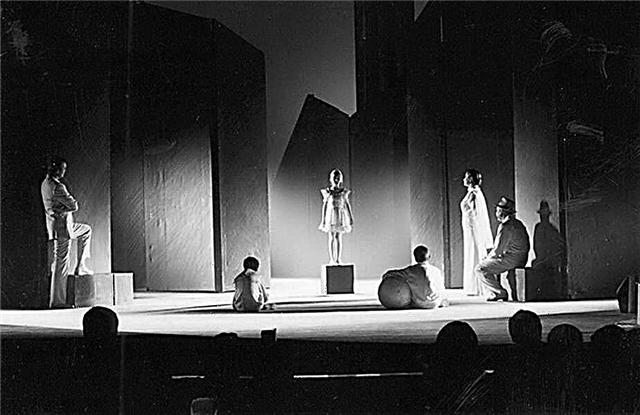On February 27, 1815, the three-masted ship Pharaoh returned to Marseille from another voyage. Captain Leclair was not destined to step on his native land: he died of a fever in the open sea. The young sailor Edmond Dantes took over command, fulfilling another captain’s last will: the “pharaoh” enters Elba Island, where Dantes passes the package received from Leclair’s hands to Marshal Bertrand and meets the disgraced emperor himself. Dantes is presented with a letter to be delivered to Paris, to Mr. Noartier, one of the conspirators preparing to return to the throne of Napoleon.
The owner of the "Pharaoh" Morrel offers Dantes to officially assume the position of captain of the ship. Obsessed with envy, the ship accountant Danglar decides to remove Dantes. Together with a retired soldier, and now a simple fisherman, Fernand Mondego, who vies with Dantes for the right to marry the beautiful Mercedes, and the tailor Cadrouss, who robbed Edmond's father during the voyage, Danglard composes an anonymous letter to the assistant prosecutor Marcel de Villefort. The meaning of the denunciation: Dantes is a secret agent of the Bonapartists. During the interrogation, Dantes without hiding, everything was as it was, tells Villefort about his visit to Elba. There is no corpus delicti; Villefort is ready to release the prisoner, but after reading the letter of Marshal Bertrand, he realizes that his happiness and his life depend on this game of chance. Indeed, the addressee, Mr. Noartier, a dangerous conspirator, is his father! It’s not enough to burn the damned letter, we must also get rid of Dantes, who could unwittingly announce the whole story — and as a result, de Villefort will lose not only the place, but also the hands of his bride Rene de Saint-Meran (she is the daughter of the old royalist; the views of Mr. Noartier, his relationship with the groom is a mystery to them). Dantes is sentenced to life imprisonment in the castle of If, a political prison in the middle of the sea, near Marseilles ...
Five years pass. Dantes is close to despair, he decides to starve to death. Suddenly, one evening, a dull rattle behind the wall reaches his ears. He is not alone here, someone is clearly digging a hole in the direction of his dungeon. Edmond begins digging an oncoming tunnel. Many days of work have been rewarded with the joy of meeting a fellow sufferer. Abbot Faria - that is the name of a prisoner from a neighboring cell - spent four years longer at Dantes in If Castle. Digging his hole, he hoped to break through to the outer wall of the prison, jump into the sea and run free to swim. Alas, he was mistaken in the calculations! Edmon consoles the abbot: there are two of them now, which means they can continue what they have begun with double energy. The abbot's forces are running out, soon - when he is within reach, he is seriously ill. Before his death, he consecrates Dantes into the secret of the myriad treasure hidden by Cardinal Spada on the island of Monte Cristo three hundred years ago.
Transferring the abbot's body to his cell, Dantes hides in the bag in which the deceased was put. In the morning, not noticing the substitution, he is thrown into the sea - this is how the inhabitants of If Castle have been buried since the foundation of the prison. Edmond is saved! It is picked up by smugglers. One of them, Jacopo, becomes a faithful companion of Dantes. After a few months, Edmond finally reaches the island of Monte Cristo. The treasures of Abbot Faria are truly countless.
During the long years of Dantes' absence, the fate of those who were guilty of his suffering also underwent significant changes, Fernand Mondego rose to the rank of general (now his name is Count de Morcer). Mercedes became his wife and bore him a son. Danglar is a wealthy banker. De Villefort - royal prosecutor. Kadruss said goodbye to the tailor’s needle and scissors and contains a rural inn. ... God sends Cadrus to a strange guest.Abbot Busoni, according to him, who professed the dying Edmond Dantes, must fulfill the last will of the deceased. Dantes handed him a diamond, the money from the sale of which should be divided into five parts: equally - Mercedes, Danglar, Fernand, Kadruss and old man Dantes. Cadrousse is blinded by the radiance of diamond. He tells Abbot Busoni that Dantes was agreed upon by those whom he decided to do good, that Mercedes did not remain faithful to him. Yes, he, Cadrouss witnessed the writing of the denunciation - but what could he do! Danglar and Fernan would have killed him on the spot if he had hinted at the unseemly nature of their mischief! As for the old man Dantes, he did not have the strength to endure the blow of fate (in fact, Cadrouss robbed him to the skin, and Edmond's father starved to death). He, he, Cadrouss, is the only heir to poor Dantes! Abbot Busoni hands Kadrouss a diamond and disappears the next morning ...
At the same time, Lord Wilmore, agent of the banking house Thomson and French, is visiting the mayor of Marseilles. He asks for permission to review the investigation file of Abbot Faria, who died in If prison. He also has an order: to pay the debts of Mr. Morrel, the owner of a ship company, which is on the verge of collapse. Morrel’s last hope was his flagship, the three-masted Pharaoh, but that one was about evil rock! - dies in a shipwreck. Wilmore hands Morrell a six-figure bill, draws up a three-month deferment. But what can be done in three months! On the day that the grace period expires, Morrell’s daughter receives a letter signed by Sinbad the Sailor indicating the address where she will find a purse intended for her illustrious father. In the wallet - a check for the amount owed by Morrell and a diamond the size of a walnut: a dowry mademoiselle Morrel. Everything that happened is like a fairy tale: but this is not enough. Into the Marseilles port, the whole and unscathed enters the Pharaoh on all sails! The city is a witness to this miracle. With a smile he looks at the sailboat and Lord Wilmore, who has risen from the abyss, he is Abbot Busoni, he is the Count of Monte Cristo, he is also Edmond Dantes: “Be happy, noble man! You deserve this happiness! .. And now - goodbye, humanity! May the god of vengeance give way to me, so that I punish the villains! .. ”With the documents from his investigation file, which was kept together with the case of Abbot Faria, Edmond leaves Marseille ...
The young Parisian aristocrat Baron Franz d’Epine, going to the carnival in Rome, set out to visit the legendary Elba. However, he changes his route: the ship swims past the island of Monte Cristo, where, according to rumors, a man lives in a fabulous palace, calling himself Sinbad the Sailor. The owner of the island accepts Franz with such hospitality and luxury, which, it seems, did not dream of any of the most powerful inhabitants of the earth. In Rome, Franz unexpectedly meets Sinbad, living in the same hotel with him under the name of Count Monte Cristo. Franz's friend Viscount Albert de Morser is captured by robbers from a gang of terrifying ataman Luigi Vampa of Rome. Count Monte Cristo rescues Albert: "Ataman, you have violated our agreement, my friend is my friend." Vampa is confused, he strictly chastises his thugs: “We all owe the count his life! How could you act so recklessly! ” Albert invites the Count to visit Paris and be his guest of honor.
In the capital (where the count did not appear before), Albert introduces him to his friends, including the son of Morrel, Maximillian. This acquaintance deeply excited the count - the young Morrel was no less excited, learning that the count was using the services of the banking house of Thomson and French, who had saved the life of their entire family.
The Count of Monte Cristo acquires several apartments in Paris and a house in Oteil, on 28 Fontaine Street, previously owned by the Marquis de Saint-Meran. The manager of the count, Bertuccio, perceives their move to this house as evil rock.Many years ago, he witnessed how de Villefort buried a newborn baby in the garden of his father-in-law’s house - an illegitimate son from an unknown lady, Bertuccio hastened to dig out a box - the baby was still alive. The daughter-in-law of Bertuccio raised a boy to whom they gave the name Benedetto. The offspring of eminent parents embarked on an unrighteous path and ended up in jail. But this is only one of two scary stories hidden by Bertuccio from the count. In June 1829, he stopped at the Cadrusse tavern - the day after the abbot Busoni visited there (Bertuccio does not realize that the abbot who rescued him a long time ago from penal servitude and the count is one person). The diamond of the abbot Kadruss sold for 45 thousand francs to a reliable jeweler, and he stabbed him that very night. Now Cadrousse is where Bertuccio happened to be: at hard labor. The count is sure that this is not the last straw in the bowl that Cadrouss must drink; as for Benedetto - if he is alive - then he will serve as the weapon of God's punishment ...
The city is full of rumors of a mysterious graph and its wealth. In the bank of Danglar, the graph opens a "unlimited loan." Danglar casts doubt on the possibilities of the count: everything in the world has borders. The count ironizes: "For you - maybe, but not for me." - "Nobody has considered my cash desk yet!" - wounded Danglar. “In that case, I am the first to face this,” the count promises him. Monte Cristo draws close not only to Danglars, who did not recognize him as poor Edmond, but also to the de Villefort family. The count conquers Madame de Villefort: the servant of Count Ali saved her and her son Villefort from an accident with marriage (Villefort also has a daughter from her first marriage - Valentine, bound by a bond of love with Maximillian Morrell, but forced by her relatives to marry Franz d Epine). It is as if fate itself is widely opening the doors to the houses of his sworn enemies in front of the Count of Monte Cristo, informing him of their other victims. A pupil of Dantes-Monte Cristo, the daughter of Pasha Yanina, the marvelous beauty Haide (rumors circulate in Paris that she is the count’s mistress) recognizes in the Opera a man who gave the Turks two thousand wallets of gold a fortress defending the city where her father ruled, and Guide herself was twelve years old girl sold into slavery to the Turkish sultan. This man's name was Fernand Mondego; he is now known as the Comte de Morser, Lieutenant General, member of the House of Peers. Hyde was bought by Monte Cristo from the Sultan, the count vowed revenge on the one who killed her father and languished in captivity herself. He was not at all surprised that this villain was Fernand: a betrayer who once betrays himself to remain a traitor to the end.
Luxurious lunch at Monte Cristo's house. The first blows prepared by the count to its offenders. Villefort turns pale when the count informs all guests that in the garden he has found the skeleton of a baby buried alive under the previous owner. Danglar finds out that, playing on the stock exchange, he suffered losses in the amount of over a million francs (the count put false information in the newspaper about the coup in Spain, and Danglar hastened to get rid of the shares of the Madrid Bank). Villefort informs Madame Danglar that the Count is apparently dedicated to their secret: the unfortunate child was their illegitimate son. “You buried my child alive!” God, this is your revenge! ” - exclaims Ms. Danglar. “No, revenge is still awaiting us, and the mysterious Count of Monte Cristo has to fulfill it!” Villefort undertakes at all costs to find out the whole truth about the graph; but when Abbot Busoni and Lord Wilmore were in Paris, they give him very contradictory information. The count not only remains unrecognized, playing these two roles, but also confuses the tracks. A young man named Andrei Cavalcanti appears in Paris (one count who showered him with bounties knows that he is a fugitive convict Benedetto). Immediately as Cadrousse sprouts from the ground, assuring Benedetto that he is his offspring, and luring the young villain out of money, threatening to break the brilliant career that opened before him.Cavalcanti-Benedetto de Villefort is forced to obey: he laid eyes on the daughter of Danglars, a damsel with a rich dowry. Isn’t it better, he suggests to Cadrousse, to shake the Count well than to draw money from him with which he is loaned by the Monte Cristo craziness? Cadrouss crawls into the Count's house - and comes face to face with Abbot Busoni. The old convict betrays the young; he writes, under the dictation of the abbot, a letter to Danglar explaining who his brother-in-law is actually five minutes later. Leaving the house of the Count of Monte Cristo, Cadrouss runs into a Benedetto knife. Before he gives up his breath, the abbot lets him make sure that he, Monte Cristo and Edmond Dantes are one person ...
A hail of misfortune rains down on de Villefort's head: one after another his father-in-law and mother-in-law suddenly die, then an old footman, who drank lemonade from the decanter in his father Noartier’s room. The doctor concludes: they were all poisoned. The culprit lives in this house. The whole servitor of Villefort immediately asks for his resignation. The case is widely publicized. And here is a new blow: Noartier upsets the wedding of Valentina and Franz d’Epine (he promised this to his beloved granddaughter). The secretary of Noartier holds a document stating that in February 1815 he killed General de Kenel, Baron d’Epine, in an honest duel, who did not want to join the Bonapartist conspiracy.
Now is Fernand's turn. Scandal in the House of Peers: newspapers published a report about his low behavior during the siege by the Turks of the fortress of Ioannina. Hyde comes to the House hearing and presents the peers with documents that confirm: all this is true, General de Morser's position in society was bought at the cost of betrayal. Albert de Morcer challenges the Count to a duel, intervening for his father, but, after he reveals the whole truth about Fernand Mondego, he asks Dantes for forgiveness. Edmond and Madame de Morser, who still loves his Mercedes, begs this. The count accepts Albert's apology; on the same day they leave their mother with Paris. Morser repeats the call of his son, but after the Count of Monte Cristo reveals his true name to him, the dishonored general fires a bullet in his forehead.
Danglar on the verge of ruin. He has to pay all new bills with which the trustees of the count come to him. His last hope is that he will be able to make a decent party for his daughter: the young Cavalcanti is the confidante of Monte Cristo, and the giver’s hand is unlikely to become scarce. After the signing of the marriage contract, the words from the letter of Cadrouss sound: “Andrea Cavalcanti is a fugitive convict!” Eugenie leaves Paris. Danglars no longer has a daughter or money. He leaves a farewell note to his wife (“I am letting you go the way you married him: with money, but without a good reputation”) and runs to wherever his eyes look. And Andrea-Benedetto flees, hoping to cross the border; but the gendarmes stop him. In court, he reports: his father is the prosecutor de Villefort!
The last, most terrible blow of fate in the heart of de Villefort: poisoned Valentine. He has no more doubts: the killer is his wife, who in such a terrible way obtained an inheritance for himself and his son (old Noartier declared the granddaughter the only heiress). De Villefort threatens his wife with a scaffold. In desperation, Ms. de Villefort takes poison and poisons the boy: “A good mother does not abandon a child for whom she has become a criminal.” Villefort is losing his mind; wandering around the garden of the house of the Count of Monte Cristo, he digs graves in one place or another ...
The act of retaliation has taken place. Villefort is insane. Cadrousse and Fernand are dead. Danglar was captured by robbers from the Luigi Vamp gang and spends his last money on bread and water: thugs sell him a humpback for a thousand francs, and in his pocket only - less than fifty thousand. The Count of Monte Cristo gives him life and freedom. Turned gray in one night, Danglar eats the existence of a beggar.
Evil is punished.But why did young Valentina de Villefort burn out in his flame, not sharing the guilt of his father and stepmother? Why should Maximillian Morrell grieve over her whole life - the son of the one who for many years in a row made attempts to rescue Dantes from prison? Leaving Paris, the count performs the miracle of the resurrection of Valentina. Her death was staged by him in association with the old man Noartier: the terrible poison was neutralized by a miracle cure - one of the generous gifts of Abbot Faria.
Returning to the island of Monte Cristo, giving happiness to Maximillian and Valentina, Edmond Dantes, the martyr of the castle If and the Parisian angel of revenge, leaves a letter for young people, which sounds both as his confession and as a mandate to two pure hearts: “There is no happiness in the world, nor misfortunes. Everything is relative. Only one who has suffered immeasurably is able to experience bliss. One must feel the taste of death in order to enjoy life with pleasure. All wisdom - in a nutshell: wait and hope! .. "

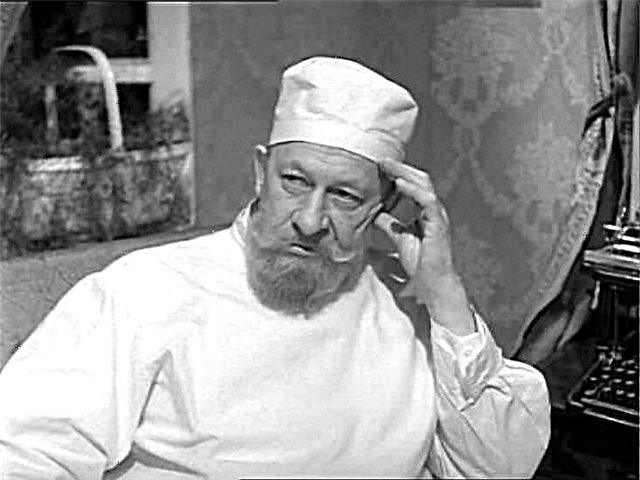
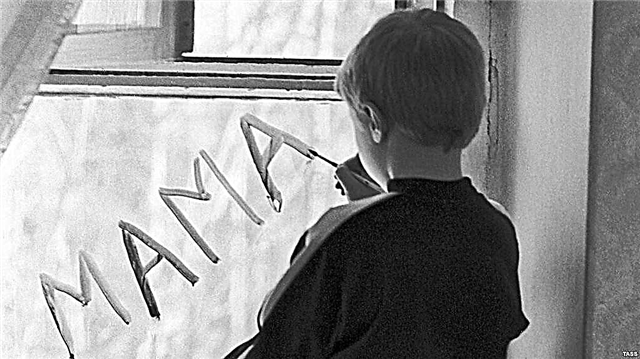
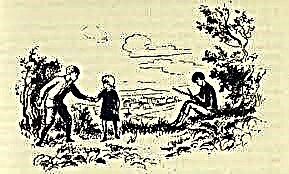
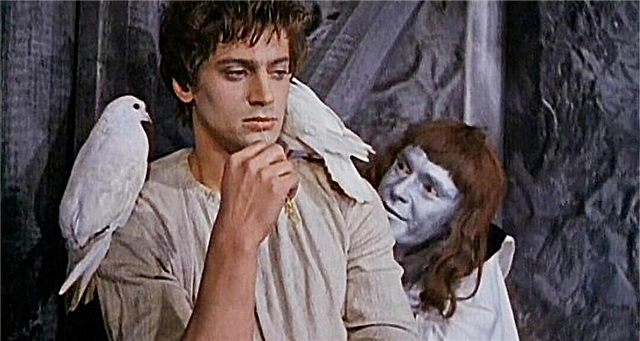 City of masters
City of masters